AUGUST GARDEN TIPS
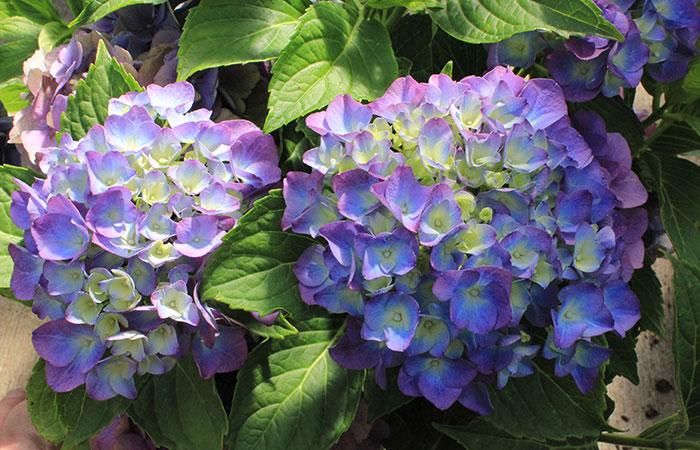
General Gardening Tips
In August, our gardens are often at their most abundant and vibrant. It's time to start harvesting the vegetables we planted in May, and to enjoy long evenings with our showiest summer flowers.
Make sure to keep watering deeply through the heat and drought that we usually experience this time of year, and to fertilize plants to get them through this time of intense growth and production.
Most of all, don't forget to make time to enjoy this beautiful month in your garden!
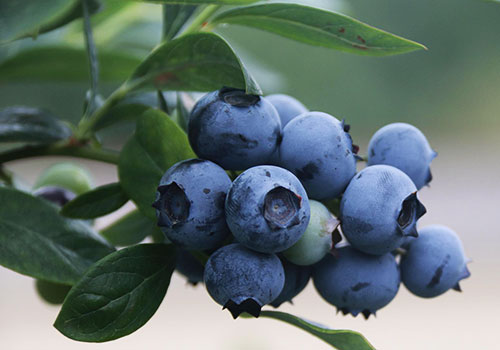
Fruits & Berries
Remember that most fruit trees and berries need regular water to bear and ripen their fruit properly (more water than other trees and shrubs). Drought can cause immediate fruit drop or malformation, and inhibit next year’s bud formation. Consider installing watering bags for trees and soaker hoses or drip systems for berry bushes. Try not to use sprinklers on or around fruit trees, especially stone fruits (cherries, plums, etc.), as overhead watering can spread disease spores.
Monitor fruit trees and berries for insect and disease problems. Consult a Sky Nursery associate for recommendations if you spot an issue.
Cut out suckers and waterspouts (whippy vertical branches).
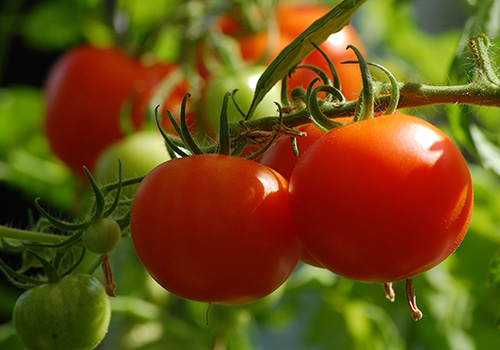
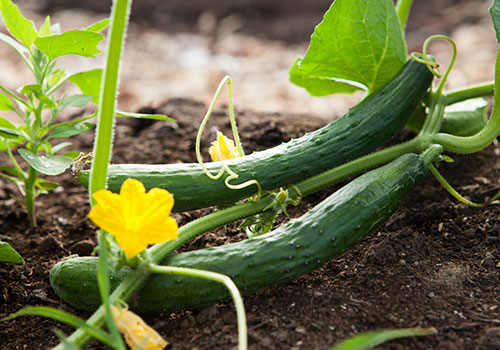
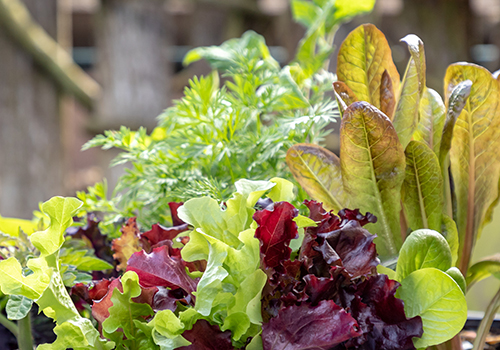
Vegetables & Herbs
Harvest! Regularly picking beans, tomatoes, zucchini, etc., encourages continued production of new and tender vegetables.
Similarly, pinch off basil flowers to encourage continued leaf production.
Plant now for fall and winter harvest. Click for Sky’s Winter Vegetable Gardening information sheet.
Water and shade your wilters! Lettuce, spinach, other greens, radishes, and beets may suffer as much from heat and glare as from lack of water. Planting tall plants to the west of their bed or putting up a shade cloth can give them relief from hot afternoon sun.
If a lettuce plant or other vegetable does bolt, that plant is trying to flower and set seed before it dies. If you are not saving the seeds its best to compost that plant and put in fresh starts.
Water and fertilize your heat loving vegetables.
Towards the end of the month, you may want to start removing new flowers from eggplants, peppers, squash, and large (not cherry) tomatoes in order to encourage the plant to focus its energy on ripening the fruit that has already started developing. At this time, you can also discontinue fertilizing. Continue to water, however, until the fall rains become regular.
Tomatoes
Protect tomatoes from blossom-end rot and cracking by avoiding irregular watering while they are ripening. Blossom-end rot can also be caused by calcium deficiency; if you did not apply lime when planting, use a calcium foliar spray to correct this.
Pumpkins
If you want big pumpkins try removing all the smaller fruit to encourage the plant to send its energy to the larger fruit.
Garlic & Storage Onions
When the tops die back, stop watering. Once the tops are completely withered the bulbs are ready to dig and store.
Potatoes
You can dig early varieties any time after the tubers start to form. To maximize harvest wait to dig until the tops die around October.
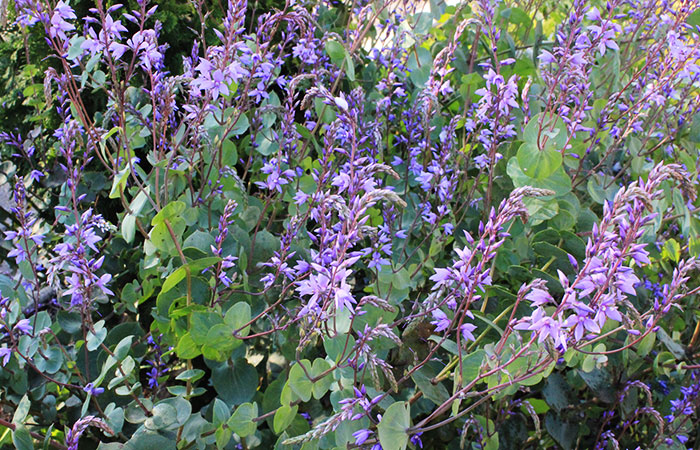
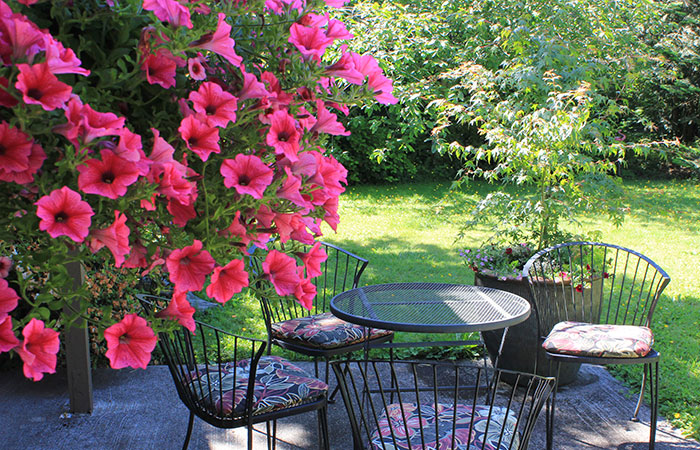
Ornamental Gardening
Water deeply and you won’t have to water as often.
Watch for aphids and insects (see Sky for ladybugs and other controls).
Groom perennials and flowering shrubs, removing spent flowers. Fertilize bedding plants and annuals regularly through the end of the month. Deadhead to encourage continued bloom.
Late summer should be hummingbird heaven in your garden. Bees and butterflies are also loading up on nectar this time of year.
Protect new transplants from heat and glare with shade cloth.
Containers & Hanging Baskets
Water! Remember that a container can dry out in less than a day in hot or windy weather.
Fertilize heavy blooming annuals in containers or baskets every two weeks until the end of the month. Deadhead regularly to encourage continued bloom.
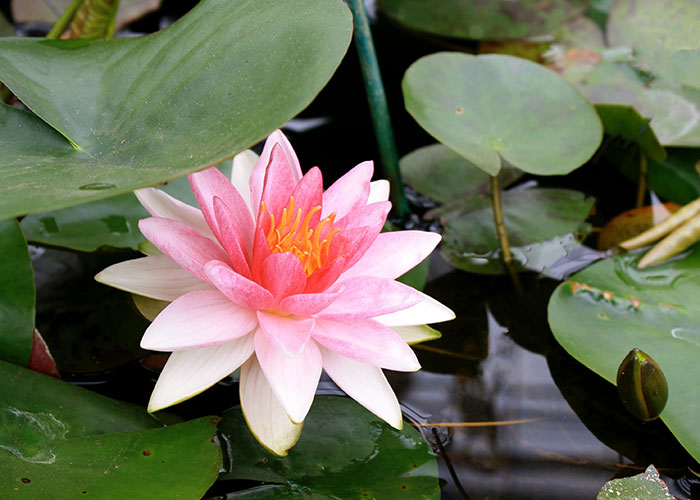
Water Gardening
Plants and fish both need nutrition if they’re going to put on their best show for you—feed them!
Give fish smaller amounts of good summer fish food several times a day rather than all at one time. Each time, give enough food for your fish to finish in about five minutes.
Feed your pond plants with aquatic plant food tablets; water lilies in particular should be fed once a month.
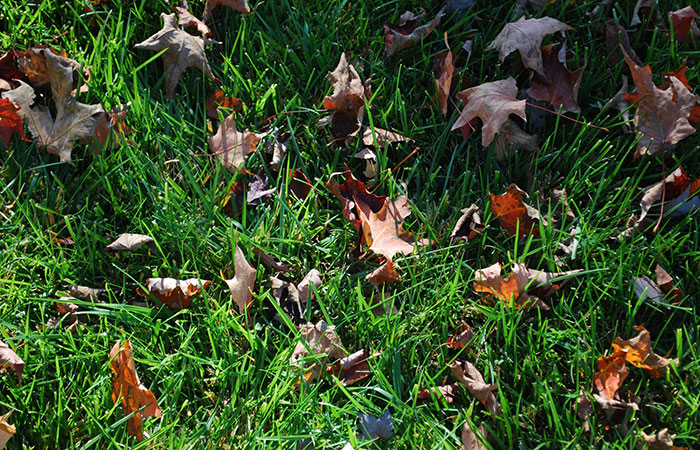
Lawn Care
If your grass has gone dormant (brown), leave it alone as much as possible until fall rains green it up again. If your lawn is used heavily while it is dormant, you may need to reseed it in the fall.
If you are keeping your lawn watered through the summer, reduce your water needs by setting your mowing height higher to encourage deep root growth, and by grass cycling.
Do not fertilize now with a fast-release fertilizer, which could encourage a growth spurt that would leave your turf susceptible to drought/heat damage.
If you have a problem with water running off your turf rather than soaking in, apply E-Z-Wet to help the water penetrate better.
If weeds are a problem, try pulling or spot-treating rather than using a weed & feed product. Remember that a well-fed lawn can outgrow most weed problems.
